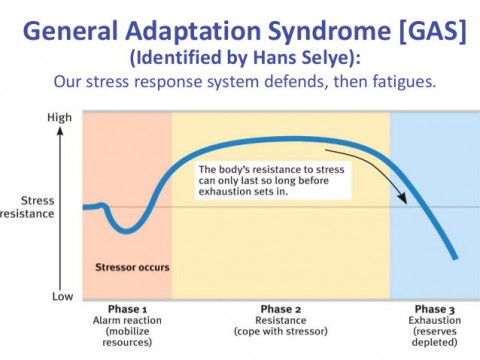How Fatigued Are You? Factors That Measure Your Fatigue Level (Chart Included)
Rest and Recovery, May 05, 2022
How fatigued is fatigued? How do you know how much training to do? How do you know when your body and mind are tired and need time to rest and recover?

Feeling fatigued after training is normal…but excessive and constant fatigue is not.
When the body is constantly fatigued it is more susceptible to illness and injury. In a fatigued state, the body’s defence mechanism – the immune system – is likely to break down, leaving the swimmer vulnerable to coughs, colds, bacterial infections, gastrointestinal infections and so on.
The good news is that there are several “fatigue factors” which, if monitored regularly, can help you manage your fatigue level and keep you healthy and training optimally.
Fatigue factors are simple measures that indicate how your body (and mind) are adapting to the stresses and strains of training.
Fatigue factors include:
Sleep – What is your quality of sleep? Do you fall asleep easily and wake feeling refreshed, or do you toss and turn and wake feeling even more tired than the day before? Swimmers training hard sleep well. Swimmers who are in a state of excessive fatigue will often complain that they have difficulty falling and staying asleep.
Muscle Soreness – Do your muscles feel tired after training or are they sore and aching for two or three days after a hard session? It is normal for muscles to be tired – that’s what training is all about. What is not normal is for muscles to be sore, aching, and tight for more than 24 hours.
Resting Heart Rate – As you get fitter, your resting (morning/waking) heart rate gets lower. If your heart rate is elevated by 10 – 15 beats per minute for two to three consecutive days, it may be a sign your body is not adapting to training (and life stresses). RHR is take first thing in the morning.
Energy – Fit people are high-energy people. Overtrained people feel slow, flat, lethargic, and lacking in energy and struggle to roll-out-of-bed.
Weight Loss – Fit, healthy people tend to keep an energy balance where weight is neither gained nor lost. In an overtrained, fatigued state, body weight can fluctuate by 1 Kg (or more) in a 24-hour period.
Recovery Techniques – There are several things you can do to help yourself deal with fatigue and stress, including eating well [day-to-day and around/during training and racing], rehydrating, getting plenty of quality sleep, having a massage, meditating (in its many forms), doing some non-weight-bearing cross training (e.g., mountain biking, elliptical trainer, water running, etc.) and following a written, individualised, and well-structured training plan.
“Feel” – Tired swimmers will often say “I have no feel” or “I can’t feel my stroke”. This lack of “feel” is related to neural (nervous system) fatigue and it is a good indicator of overtraining and excessive fatigue.
Stress – We all need stress in our lives but not too excess. Triathletes are people too! And as people they are subject to all the stresses and strains of life – family, study, relationships, money, work, etc. There is a strong relationship between life stress and fatigue levels.
These fatigue factors are relatively simple to measure and can be excellent indicators of your level of fatigue.
Fatigue Fighter Index Score sheet – FFISS
Try a simple self-monitoring experiment and complete the FATIGUE FIGHTER index. FFISS is an indicative test only, at a point-in-time. You should seek medical advice ASAP if you regularly score below 23.
Sleep Range is 1 – 5.
Score 1 if you still wake fatigued after sleep of poor quality, and 5 for restful 8+ hours of quality sleep.
Muscle Soreness Range is 1 – 5.
Score 1 for very sore, tired, aching muscles and 5 for relatively little muscle soreness.
Resting Heart Rate
If your resting heart rate is elevated by more than 15 beats per minute, add 1; if elevated by 11-15 add 2; if elevated by 6-10 add 3; if elevated by 5 beats per minute add 4; and if steady on your normal resting heart rate, add 5.
Energy Range
Score 1 if you feel tired, slow, and low on energy and 5 if you feel great and energized.
Weight loss
If you have lost 1 Kg or more in the last 24-48 hours score 1 point. If you have lost 500-800 grams score 3. If you have lost 300 grams or less score 5.
Recovery techniques
Add 1 if you have a weekly massage or use regular foam roller. Add another 1 if you take a yoga class each week or meditate. Add another 2 if you consistently rehydrate and refuel during and after training. Add another 2 if you follow a personalised training plan.
“Feel”
Score 1 if you have no swim ‘feel’ and your swim stroke feels awkward and lacking power. Score 5 if your stroke is long and strong and powerful (Based on how you normally ‘feel’ when swimming). Note it’s likely that you will also have same ‘feel’ across cycle and run.
Stress Range
Score 1 if you are stressed to a breaking point. Score 5 if you have little or no stress.
YOUR FATIGUE INDEX TOTAL:
Score Fatigue Index^
Total your points from every question and review index below.
Above-32. Great you’re not too fatigued. Keep on training and working hard.
31 – 23. A little fatigued. Continue training but work more on your recovery techniques like massage, rehydration, refuelling and get some more rest (especially sleep).
22 – 15*. You are showing real signs of fatigue. Decrease your training intensity and work harder on your recovery. If you need to, take a session off and rest. Speak to your coach or health professional.
14 – 8*. Time to rest, recover and regenerate. Take a couple of days off and do something you love to do: read, walk, spend time with friends and family, go to the movies.
*Relax, unwind, and complete this Fatigue Index again in two days. If your score has moved up above 23 it is probably safe to go back into the water. If your score has not improved significantly, go, and see your health professional.
^This Fatigue Index is not a definitive indicator of overtraining. It is a simple tool to make you aware of the physical, mental, technical, and emotional factors that are involved in the fatigue process. If you find your score is regularly less than 23, you must seek medical advice and have a serious look at your training and recovery program with your coach.
Original article by Wayne Goldsmith, Swimming World Archive, 2020 and edited by Peter Richards
